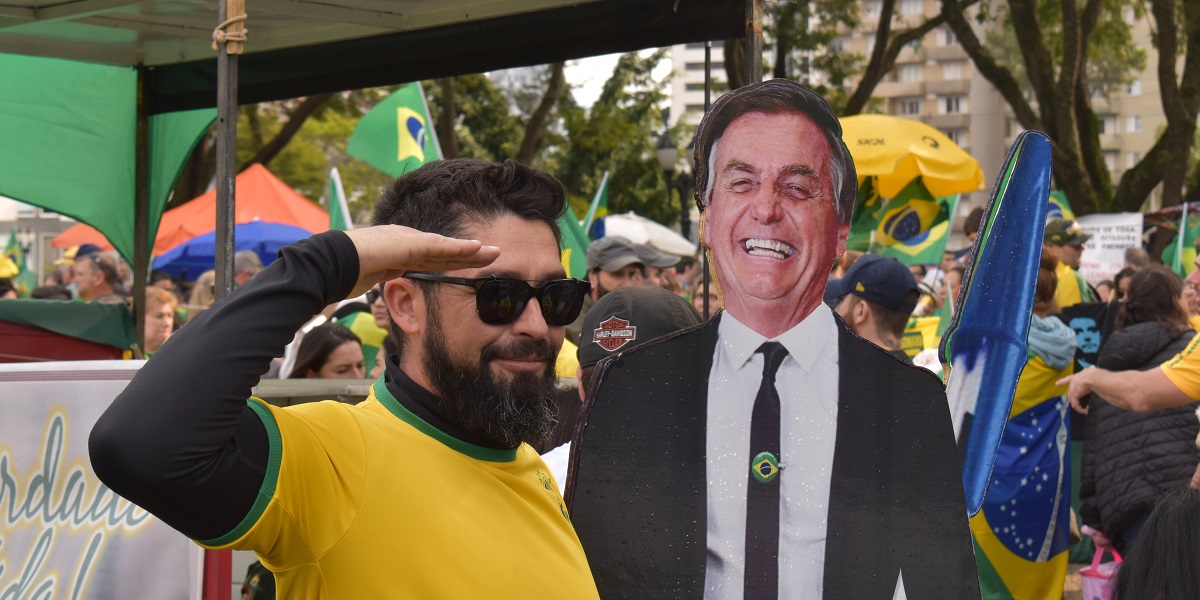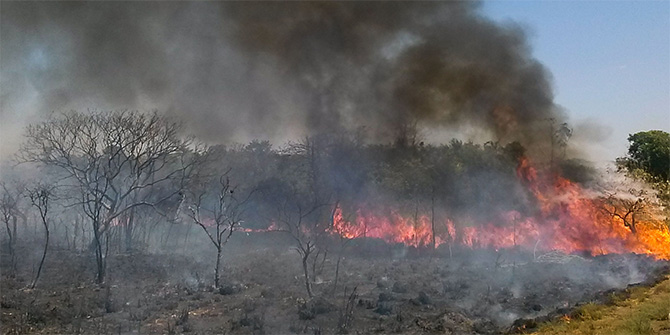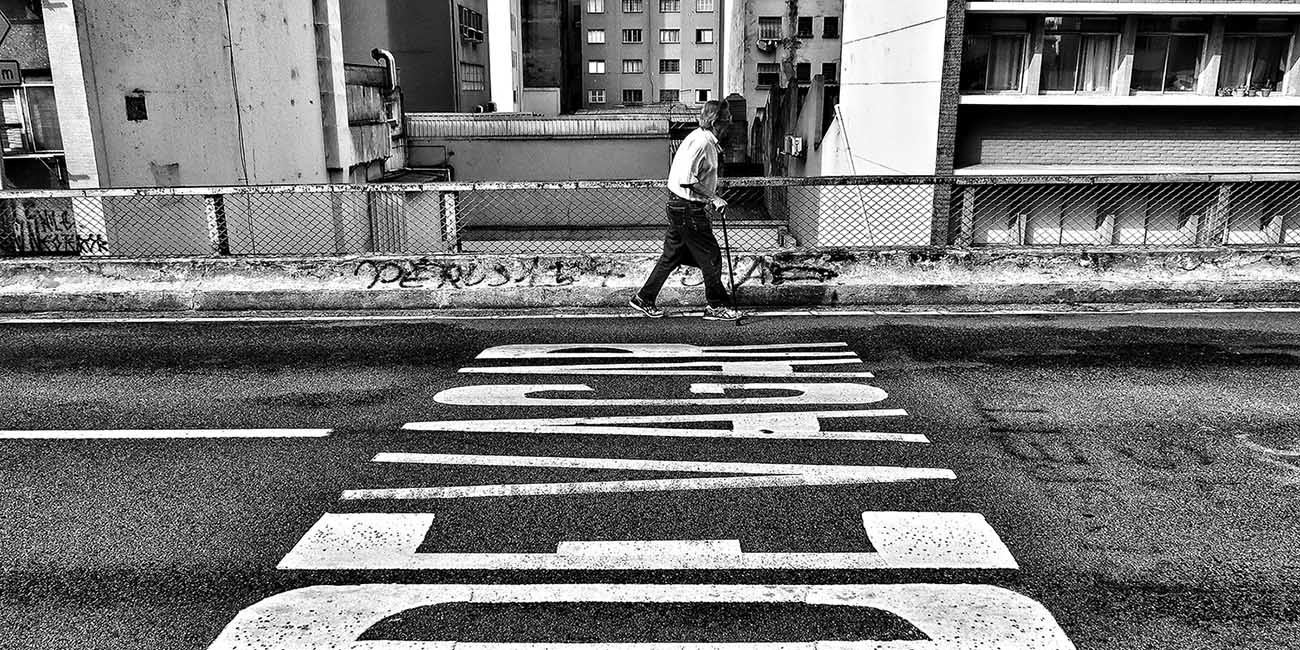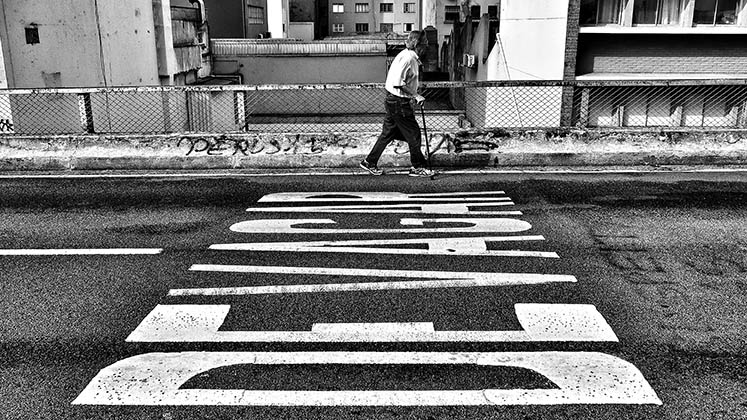The upcoming Brazilian election takes place in a context of crisis and with countries highly dependent on the market’s fate. If Jair Bolsonaro is re-elected, his authoritarian neoliberalism project will be strengthened, and democracy will be in danger. But if Lula Da Silva wins, that won’t necessarily be the defeat for that system, Leonardo Fontes (LSE Latin America and Caribbean Centre) argues.
Leia este post em português
Brazil is experiencing one of its most serious and prolonged crises. This crisis, which affects the economy, politics, and society in general, can be traced back to the world crisis of 2008 and to the great demonstrations of June 2013. Those events have shown a great and widespread popular dissatisfaction with various aspects of Brazilian political and social life, particularly the conduction of institutional policy and the quality of life in cities.
Despite the contingency issues of that moment, I attribute the current crisis to a broader contradiction between neoliberalism and democracy, which is at the heart of this year’s electoral dispute, polarised between former President Luís Inácio Lula da Silva and the current President Jair Bolsonaro.
This crisis, also experienced in other countries of the world and especially in Latin America, reminds us of the problems that liberalism went through at the beginning of the last century and that culminated in the rise of Nazi-fascist regimes. By analysing that context, Karl Polanyi (1944) identified a historical process around a dispute between commodification and protection of three “fictitious commodities”: land, labour, and money.
Polanyi argued that while 19th-century liberalism sought to transform these three fundamental elements of human life into freely tradable commodities on the “market”, forces of “society” claimed their protection through political mechanisms.
It is possible to say that neoliberalism follows similar ideological principles to its predecessor and seeks to withdraw or reduce to a minimum the mechanisms of social, environmental, and monetary protection. As a result, land, labour, and money would be subject to the “laws” of free competition and probable predation.
This political and ideological framework has unrolled in processes such as the privatisation of public services, the reduction of regulations around work and the environment and the resurgence of fiscal austerity and the free international movement of capital.
Another crucial part of neoliberalism is the discourse about the self-management of workers and the increase of incentives to entrepreneurialism. My current research in urban peripheries in São Paulo has shown a growth of an entrepreneurial disposition among poor workers that either can’t find better opportunities or crave less precariousness and more rewarding ways to sell their workforce.
The result of almost 40 years of neoliberalism in the world can be seen in the processes of work precariousness, intensification of the climate crisis, increase in the concentration of wealth, and loss of legitimacy of democracy.
Once land, labour and money are mostly under the governance of the market, national governments have very few options to act to overcome such a crisis that was initiated in 2008, affected Brazil more intensely from 2014 and was aggravated by the pandemic.
As Polanyi warned, the (neo)liberal project of reducing political regulation on the relations between workers and entrepreneurs and between humans and nature, and the weakening of the role of the State towards economic activity tends to lead human society to collapse. Collapse can occur due to the exhaustion of natural resources, the impoverishment, mental illness of workers and the loss of their social ties, the insolvency of economic crises, or a probable combination of these three processes, such as the one we are experiencing now.
The need for a third movement
However, the “double movement” described by Polanyi that would oppose “commodification” and “protection” is not enough to understand the disputes at stake in the 2020s. Since at least the middle of the last century, a third political and social force, which seeks to conquer forms of liberation in the face of oppressions related especially to gender and race issues, has gained strength. Thus, as Nancy Fraser suggests, we need to add a third movement to Polanyi’s analysis that concerns the struggle for liberation (or emancipation, as Fraser prefers).
This agenda on liberation from different kinds of oppressions has a strong cultural background and is crucial to understand the mobilization of youngers in Brazilian urban peripheries during the last decade as my previous research points out.
The Brazilian election is taking place in the midst of this crisis and the disputes around this “triple movement” (commodification x protection x liberation from oppressions). Bolsonaro, elected in 2018 as an outsider of the traditional political system, embraced from the beginning a strongly neoliberal agenda, headed by his Minister of Economy Paulo Guedes.
During his government, despite several manoeuvres to increase public spending during the pandemic and on the eve of the election, Bolsonaro sought to follow the recipes of fiscal austerity and passed a law guaranteeing independence to the Central Bank, which expanded the process of commodification of money and reduced the State’s capacity to act.
Bolsonaro also relaxed the legislation and weakened environmental control institutions. In addition, he approved a new legal framework for basic sanitation, which allowed the privatization of water and sewage supply services and privatised Brazil’s main electricity company. As a result of reduced environmental protection, deforestation rates in the Amazon are the highest in 15 years.
Finally, concerning the commodification of work, Bolsonaro argued that workers should choose between “fewer rights and jobs, or all their rights and unemployment” and defended the reforms approved by his predecessor Michel Temer which made labour relations more flexible. He also approved at the beginning of his term in office a new social security reform and weakened Brazil’s main cash transfer program.

Freedom and protection with inverted meanings
On the other hand, Bolsonaro sought to offer a protection speech that convinced a large part of the Brazilian electorate. His target, however, was not the predatory market forces that have been disrupting social relationships and the mental health of workers or destroying Brazil’s environmental heritage. Instead, Bolsonaro positions himself as a “protector” of values such as family, the nation, God, and freedom.
It is important to emphasize that “freedom” for Bolsonaro has a purely negative character. It refers only to the absence of restrictions on the action of individuals. Thus, he claims the “freedom of speech” when someone is accused of being sexist, racist, or homophobic; the freedom of movement against sanitary measures during the pandemic; and the freedom to buy and carry a gun for self-defence and to defend one’s private property. In the context of the “triple movement” referred to above, this means freedom to maintain oppressions and not to overcome them.
Furthermore, Bolsonaro is a former army captain who built his political career by maintaining proximity to public and private security forces. More recently, its links with segments of the police forces that sell “protection” to illegal markets – such as the Rio de Janeiro militias – have become clearer, especially in the drug market, but also in the real estate market, logging, mining, and irregular agriculture as Gabriel Feltran pointed out.
The authoritarian neoliberal project beyond the election
Bolsonaro consolidated the authoritarian neoliberal project through the unification of pro-market groups with security forces that operate on the borders of illegality around moral values that often reinforce the oppressions of minority groups in Brazilian society, such as black people, women, and the LGBTQIA+ community. His possible re-election puts the democratic regime in Brazil at great risk.
On the other hand, Lula da Silva’s victory does not mean a defeat of the authoritarian neoliberal project. During the 14 years the Worker’s Party (PT) ruled the country (eight of which were under Lula’s presidency), Brazil progressed in protecting workers and the environment and in emancipatory agendas for oppressed groups.
However, these social improvements were timid given the size of the Brazilian social debt, and failed to change the correlation of social forces.
Much of the results that Lula achieved in terms of social mobility were mainly focused on a growth of consumption power and some gains in terms of access to higher education. Moreover, most of these achievements proved to be fragile and were quickly lost at the beginning of the economic crisis, as my previous research has shown. These weaknesses in economic gains and the new dynamics of work in the face of new digital technologies point to the need to expand social protection beyond work, with the guarantee of basic social rights and a universal basic income.
Furthermore, many of the demands for emancipation were directed at the market rather than the State, producing a Brazilian version of “progressive neoliberalism”. Currently, my research has pointed to the growth of a specific type of peripheral entrepreneurialism that directs demands to both the market and the State in order to increase their level of protection and obtain emancipatory gains in the face of gender and racial oppression. Once again, the challenge of dealing with the triple movement in order to guarantee protection and liberation is posed.
Bolsonaro’s defeat is the first step towards restoring confidence in the democratic process. However, without a project that resumes and expands emancipatory achievements, protects workers and the environment from overexploitation, promotes income redistribution, and resumes the State’s capacity for democratic action in the economy, new authoritarian threats are sure to emerge in the near future.
Notes:
• The views expressed here are of the authors rather than the Centre or the LSE
• Please read our Comments Policy before commenting
• Banner image: Jair Bolsonaro in Brazil, 2022 / Isaac Fontana (Shutterstock)





